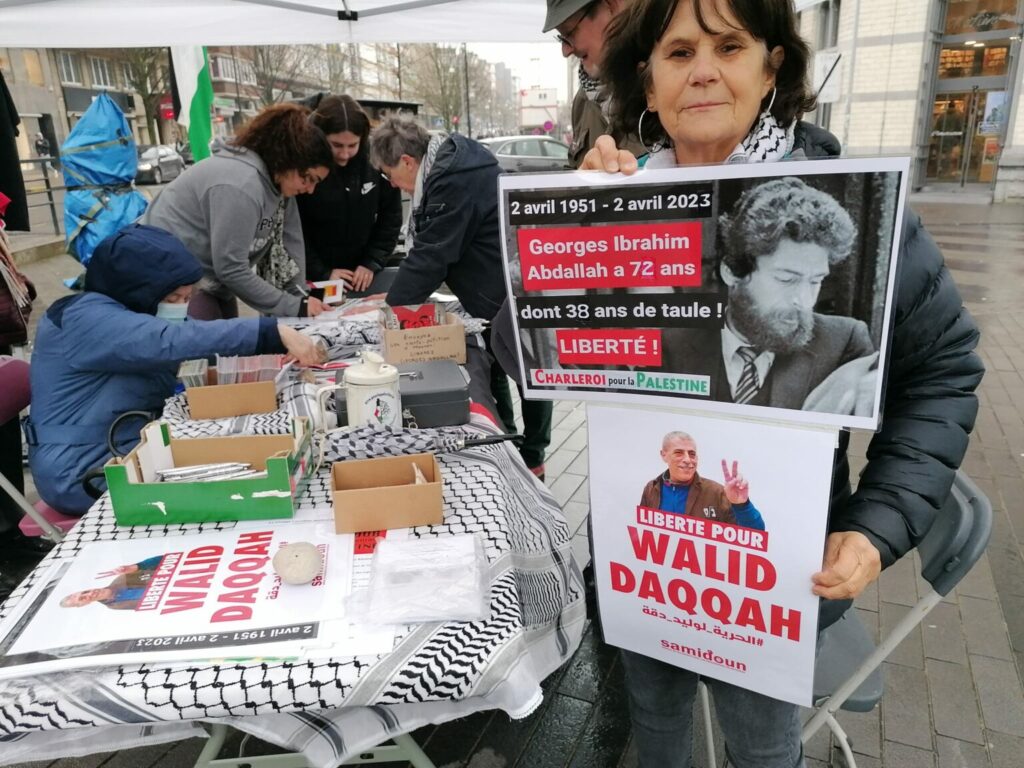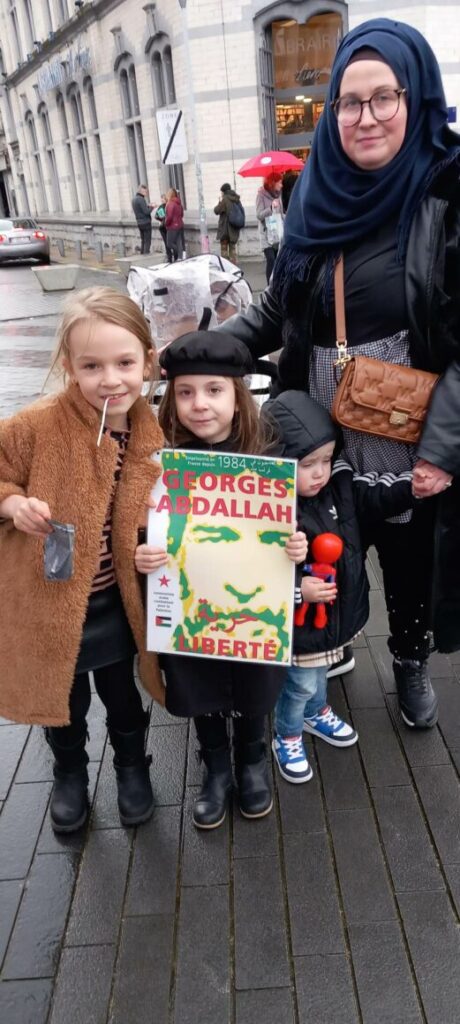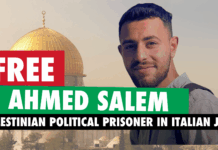
On 17 February, 1942, Huey P. Newton, co-founder of the Black Panther Party (BPP), historical figure of the Black Panthers, was born. For the preface to his autobiography, Revolutionary Suicide , published by Premiers Matins Novembre in rench, Ahmad Sa’adat, general secretary of the Popular Front for the Liberation of Palestine (PFLP), evoked three of the longest-held political prisoners in the world.
“Whether they are called Mumia Abu-Jamal, Walid Daqqah or Georges Ibrahim Abdallah, political prisoners behind bars can and must be a priority for our movements
Mumia Abu-Jamal has been imprisoned since December 9, 1981 in the United States
Walid Daqqah has been imprisoned since March 25, 1986 in Israeli occupation prisons
Georges Ibrahim Abdallah has been imprisoned since October 24, 1984 in France
On Saturday, 1 April, the Plate-forme Charleroi-Palestine, in Charleroi, Belgium, organized a stand for Palestine in Place Verte in Charleroi calling for the release of Georges Abdallah and Walid Daqqah. The Plate-forme is an affiliate of the Samidoun Network.
They distributed flyers and information, and many people, especially youth, took photos to show their solidarity.





Georges Ibrahim Abdallah
Sunday, 2 April marks the 72nd birthday of Georges Abdallah, the Arab communist and Palestinian resistance fighter imprisoned in France since 1984. On this occasion, the Unitary Campaign for the Release of Georges Abdallah initiated an international week of action from March 25 to April 2.
Many passers-by responded to our invitation to write to Georges and to send cards to Macron, calling upon him to sign the order for Georges’ expulsion to Lebanon. As he has been eligible for release since 1999, this is in fact the primary obstacle preventing Georges from returning to his family in Lebanon.







Walid Daqqah
Because the life of the political prisoner Walid Daqqah is in danger, we also informed the people who visited our stand about him. Many of them underlined the cruelty of the occupation and colonization of Palestine and expressed their wishes to join our future actions.



Find below two texts by Walid Daqqah , posted on the FB page , launched by his family
Parallel Time
“We are part of a history, and history obviously is a state of past events that have ended, except for us; for us it is a continuous past that never ends. We communicate with you from it as a present that shouldn’t be your future. Our time is different from yours, for time here does not pace itself on the axis of past, present, and future. Our time, which flows in the lingering place, dropped the concepts of conventional time and space from our language, or it confused them, if you wish. Here, we don’t ask when and where we shall meet, for example, for we have met and keep meeting at the same place. Here, we travel at ease, back and forth, on the axis of the past and present, and every moment, post presentness, is an unknown future that we are not capable to deal with. We have no control over our future, and our case is quite similar to that of all Arab peoples. Yet, there is a substantial difference: our occupation is foreign and theirs is Arab. Here we are in captivity because we search for a future, while their future has been buried alive.”
Letter to a Comrade (excerpt)
“To depict life in prison, I always use the trope of a train car. Closed and with no windows. In order to know where this wagon took you, and what distance it traveled, or perhaps in order to know the speed, you must drill a hole in the wall. Writing or painting are drilling a hole. Responses I receive as a feedback on what I produce […] are the scenes of nature I see through this opening, the mountains and the trees— what indicate my time, place and speed. There have been always, inside the wagon, well-versed “travelers” who read your text, and tell you where we are at, and what the train’s speed is. However, those veterans remain travelers like myself, and all the time I need not appreciation, but rather a certain view from the outside of the parallel time.”
Freedom for Georges Abdallah and Walid Daqqah!
Discover more from Samidoun: Palestinian Prisoner Solidarity Network
Subscribe to get the latest posts sent to your email.




